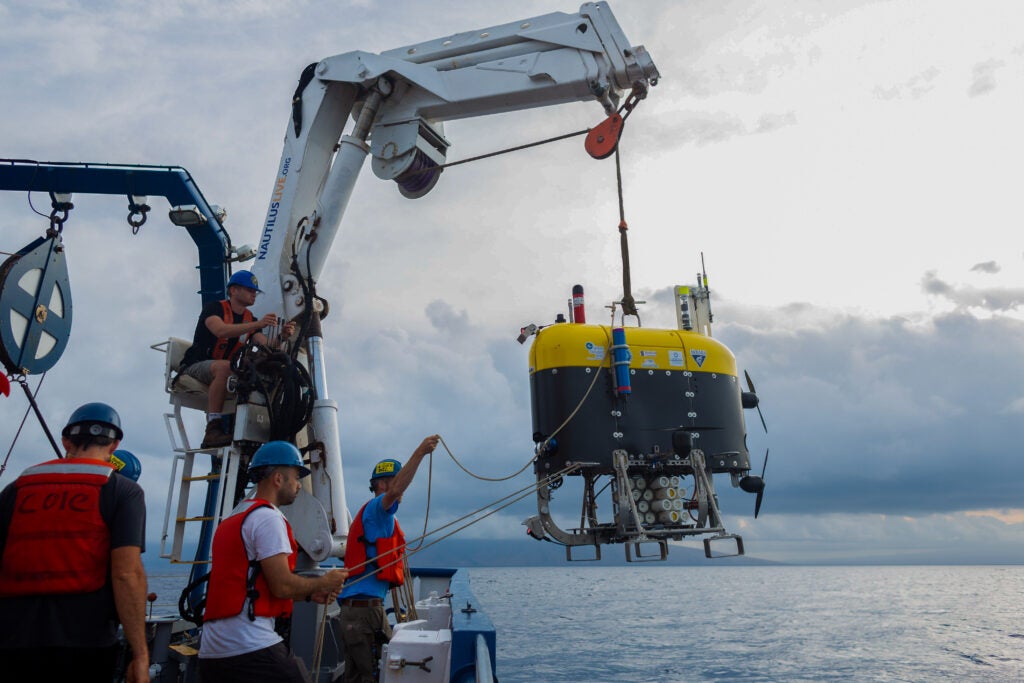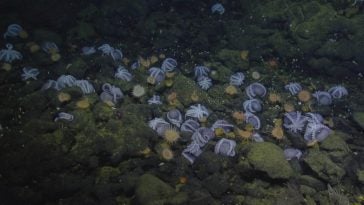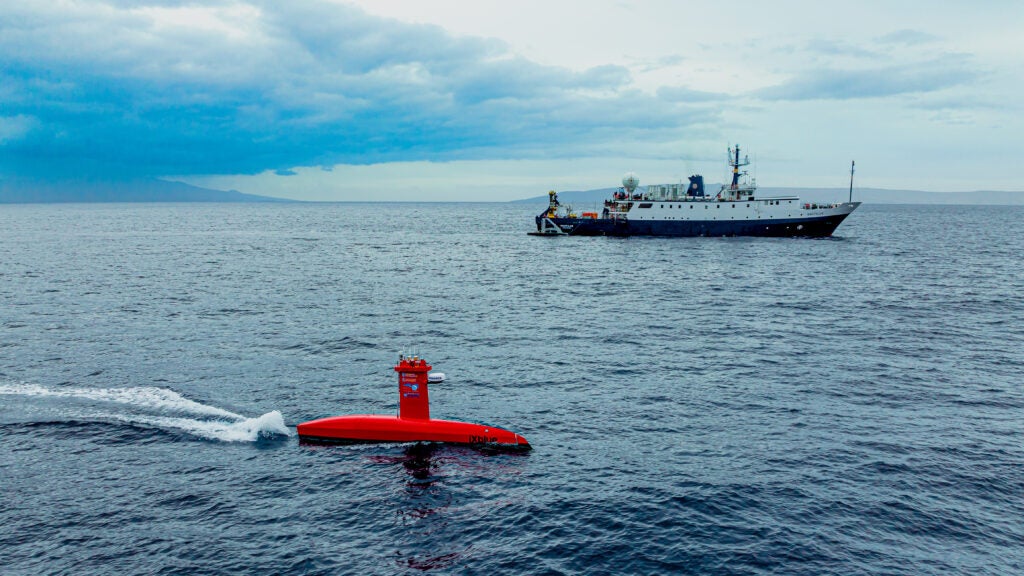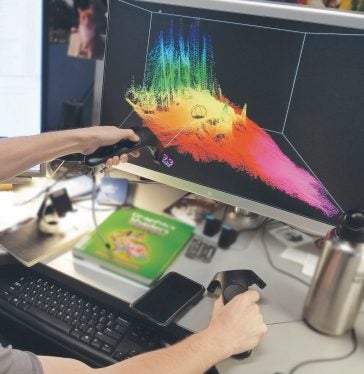What is OECI?

OECI is a vertically-integrated ocean exploration enterprise that aims to accelerate exploration through the co-development of new ocean technologies and operational concepts, field testing and refinement of new technologies, and application of new and existing systems and approaches to the vast, unexplored and underexplored regions of the U.S. EEZ.
The OECI affiliate institutions along with NOAA bring deep engineering, scientific, communication, and management expertise to bear, creating a powerful collaboration aimed at ocean exploration. Activities of the OECI, whether communicating with students or building robotic tools, are executed collaboratively to ensure that new developments and new exploration maximizes the collective experience and competencies of this partnership and feed back towards achieving all of OECI’s thematic goals. Those goals are listed below…
Theme I: Exploration Planning and Execution

With newly developed and proven technologies, carry out large-scale campaigns in NOAA priority areas to map and characterize the Ocean. Increase the use of multiple assets to expand the richness and range of exploration and characterization data that can be routinely acquired.
- Map and conduct in-water exploration to characterize unexplored and under-explored areas, processes, natural features and man-made objects in the global ocean; within the U.S. Exclusive Economic Zone (EEZ), Extended Continental Shelf (ECS), and in other nations’ EEZs and international waters as national and NOAA program priorities dictate.
- Assist NOAA Ocean Exploration and plan at-sea ocean exploration programs, including organizing regular workshops within the ocean exploration community.
- Continue to conduct NOAA-funded extramural ocean exploration tasks, missions, and campaigns: Initially from E/V Nautilus with its ROV exploration system; Progressively and additionally from other ships of opportunity (e.g., NSF’s Regional Class Research Vessels, other NOAA Ships, UNOLS vessels, Navy survey ships and chartered commercial vessels).
Theme II: Ocean Exploration Technology

As international leaders in developing and applying advanced robotics, expand the agility, breadth, and efficiency of present core exploration capabilities.
Develop and deploy leading ocean exploration and telepresence technologies and support innovation in telepresence and demonstration of new technologies.With NOAA support, develop and deploy a family of mobile ROV systems.Provide support to state-of-the-art ocean mapping capabilities and innovations in ocean mapping tools, visualization, and techniques.Increase identification and integration of new autonomous exploration vehicles (e.g., powered AUVs/Gliders/ASVs) into exploration operations generally and with specific exploration vessels specifically; incorporate improved navigation, endurance, and artificial intelligence.
Theme III: Increase Utility of Ocean Exploration Information

As exploration activities expand in scope and richness, so too will the volume and types of data collected. OECI aims to match the needs of government with scientific opportunity to produce findable, accessible, interoperable, and reusable data. In concert, OECI aims to leverage the ocean exploration data collected as well as the collection itself to engage the public in the excitement of ocean exploration and encourage the next generation of ocean explorers, STEM scientists, and Blue Economy workforce.
- Ensure that all OECI data collected meets a high standard for quality and is findable and accessible to the scientific community, government and NGO policy makers, and the broader community.
- Develop systems that increase the efficiency of data processing and manipulation through the use of artificial intelligence, machine learning, and cloud-based computing.
- Enhance the utility of ocean exploration data through the development and application of visualization tools that scale from local to global data sets.

